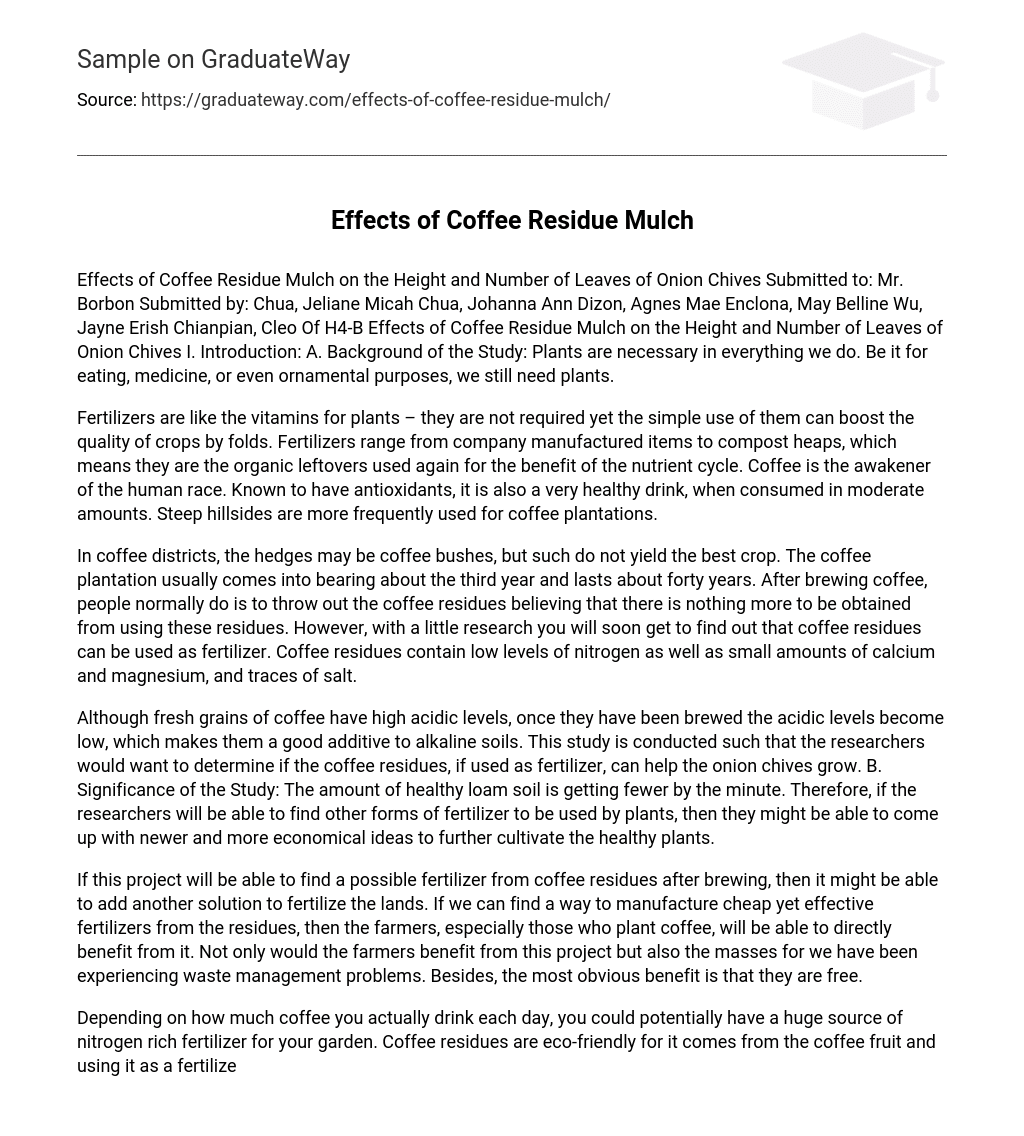Background of the Study
Plants are necessary in everything we do. Be it for eating, medicine, or even ornamental purposes, we still need plants. Fertilizers are like the vitamins for plants – they are not required yet the simple use of them can boost the quality of crops by folds. Fertilizers range from company manufactured items to compost heaps, which means they are the organic leftovers used again for the benefit of the nutrient cycle. Coffee is the awakener of the human race. Known to have antioxidants, it is also a very healthy drink, when consumed in moderate amounts. Steep hillsides are more frequently used for coffee plantations.
In coffee districts, the hedges may be coffee bushes, but such do not yield the best crop. The coffee plantation usually comes into bearing about the third year and lasts about forty years. After brewing coffee, people normally do is to throw out the coffee residues believing that there is nothing more to be obtained from using these residues. However, with a little research you will soon get to find out that coffee residues can be used as fertilizer. Coffee residues contain low levels of nitrogen as well as small amounts of calcium and magnesium, and traces of salt.
Although fresh grains of coffee have high acidic levels, once they have been brewed the acidic levels become low, which makes them a good additive to alkaline soils. This study is conducted such that the researchers would want to determine if the coffee residues, if used as fertilizer, can help the onion chives grow.
Significance of the Study
The amount of healthy loam soil is getting fewer by the minute. Therefore, if the researchers will be able to find other forms of fertilizer to be used by plants, then they might be able to come up with newer and more economical ideas to further cultivate the healthy plants.
If this project will be able to find a possible fertilizer from coffee residues after brewing, then it might be able to add another solution to fertilize the lands. If we can find a way to manufacture cheap yet effective fertilizers from the residues, then the farmers, especially those who plant coffee, will be able to directly benefit from it. Not only would the farmers benefit from this project but also the masses for we have been experiencing waste management problems. Besides, the most obvious benefit is that they are free.
Depending on how much coffee you actually drink each day, you could potentially have a huge source of nitrogen rich fertilizer for your garden. Coffee residues are eco-friendly for it comes from the coffee fruit and using it as a fertilizer may just help reduce municipal waste in the landfills.
Statement of the Problem
The research aims to arrive at clear answers to the following questions:
- Is there a significant difference in the height and number of leaves of onion chives fertilized by coffee residue?
- How much fertilizer is needed to attain the most effective?





